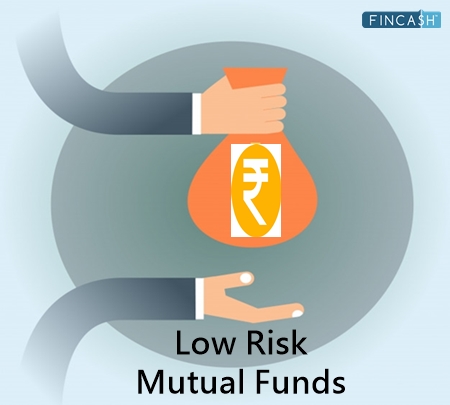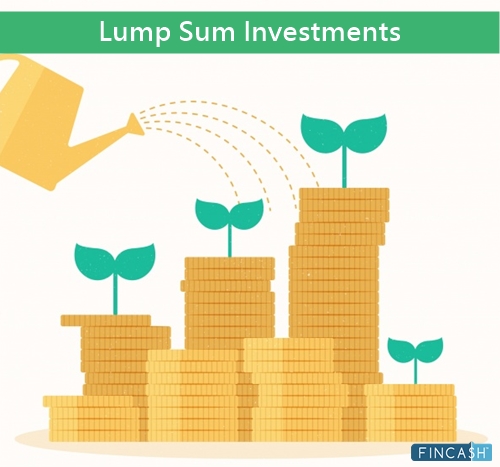Top 6 Best Gilt Funds To Invest In 2026
Want to invest during falling interest rates? Gilt Funds in India are an answer to this!
Gilt Mutual Funds provide good returns during times of falling interest rates depending upon its maturity (or duration). Investors Investing in these funds need to have enough time for tracking their investments since the NAVs of these funds move very sharply with movement in interest rates.
Gilts funds are often used by two kinds of investors. Firstly, those who primarily want little or no credit risk, since the securities are backed by the government of India (or the government of the country they belong to) hence they carry least possible credit risk.
How To Choose Best Gilt Debt Mutual Funds?
1. Duration And Average Maturity
When investing in gilt debt funds, it becomes necessary to determine the average maturity and the duration of the fund. This can be obtained in the fact sheet of the fund, the average maturity relates to the average time taken for securities to mature. The higher the average maturity (or duration), the higher the sensitivity to interest rate movement. While a downward movement is positive to the NAV of the fund (and hence returns), and upward (or increase) movement of interest rates will impact the NAV negatively resulting in a loss.

Duration refers to the weighted average maturity of the securities in a Portfolio. It is a prime parameter used by analysts and others to determine the interest rate sensitivity of the mutual fund. If the funds are held for the time of duration of the portfolio and the fund manager does not do anything, then the investor will generate the yield on the portfolio, without being subjected to interest rate movements. Gilts funds are often used by two kinds of investors. Firstly, those who primarily want little or no credit risk, since the securities are backed by the government of India (or the government of the country they belong to), these investors invest for the yield and not for a view on interest rates. The other kind of investors who invest in Gilt Funds are the ones who take a view on interest rates, they would typically look at the maturity or duration of the portfolio and invest accordingly.
There are primarily three kinds of gilt funds that exist, short term, medium term and long term. Short term gilt funds have a low duration, typically less than a year. Long-term gilt funds can have a very high maturity period, at times going up to 10 to 15 years also. Long-term gilt funds are invested in for yield as well as playing the interest rate view by investors.
Talk to our investment specialist
2. Interest Rate Risk
Gilt funds and interest rates are archrivals. There is an inverse relationship between Gilt debt funds and interest rates. An increase or decrease in the interest rate causes the NAV of the fund to fall or rise. This results in the fluctuation in the fund’s return. In fact, such extreme Volatility in returns of the gilt funds makes them the riskiest in the debt mutual category. The impact is so profound that it may drive the yields to negative in the short run. Therefore, one should consider investing in gilt funds when inflation is near its peak and the RBI (Reserve Bank of India) is not likely to raise the interest rate immediately. This would ensure there no downward movement in the NAV and hence returns. Any fall in interest rates would add to the returns of the fund.
A newbie investor should avoid investing in gilt mutual funds without a robust strategy.
Moreover, there are some other quantitative parameters that investors need to analyse before selecting the best Gilt Funds:
Look for a Gilt Fund that gives the most stable and consistent returns year-after-year. A fund having lesser volatility would be consistent. Volatility can be determined using the Beta and Standard Deviation (SD). Beta indicates how much fund’s return is sensitive to index movements. A beta of 1 signifies that the mutual fund NAV moves in line with the relevant benchmark, a beta of a greater than 1 designates that the NAV moves more than the relevant benchmark of the fund, and a beta of less than 1 means NAV moves less than the benchmark. Investors should decide before getting into a fund whether they want higher beta or low beta.Coming to SD, it is a statistical measure representing the volatility or risk of a fund. The higher the SD, higher will be the fluctuations in the returns. Ideally, investors look for funds with a lower standard deviation. However, if the investor is clear on the reason of investing and has reviewed the fund performance as well as portfolio & related parameters (yield, duration, maturity etc), this is something one can overlook.
The expense ratio is also one of the parameters to check your fund returns. It is advisable to go for a fund with a lower expense ratio in the same category. This is because the returns are derived after deducting expense ratio from the fund’s total return. Thus, the lower the expense ratio, the better returns it can deliver.
One needs to be careful in the entry and exit of their investments accurately. More importantly, considering important parameters to shortlist or invest in the best Gilt funds can be an optimal way to strengthen your portfolio. We take you to some of those parameters, following the best Gilt funds or Best Performing Mutual Funds to Invest in 2026.
Fund Selection Methodology used to find 6 funds
Best Gilt Funds To Invest In FY 26 - 27
Fund NAV Net Assets (Cr) 3 MO (%) 6 MO (%) 1 YR (%) 3 YR (%) 2024 (%) Debt Yield (YTM) Mod. Duration Eff. Maturity SBI Magnum Constant Maturity Fund Growth ₹65.1036
↑ 0.05 ₹1,801 0.6 2.3 6.2 7.7 6.7 6.79% 6Y 11M 8D 9Y 10M 2D ICICI Prudential Gilt Fund Growth ₹104.666
↑ 0.02 ₹9,181 0.5 1.8 5.7 7.5 6.8 7.25% 6Y 6M 7D 18Y 4M 17D UTI Gilt Fund Growth ₹63.8694
↑ 0.01 ₹545 0.9 2.4 5.1 6.9 5.1 6.65% 5Y 2M 1D 7Y 1M 2D SBI Magnum Gilt Fund Growth ₹66.5605
↑ 0.03 ₹10,817 0.2 1.6 4.2 7 4.5 6.44% 5Y 1M 6D 8Y 2M 16D Canara Robeco Gilt Fund Growth ₹75.366
↑ 0.04 ₹145 0 0.9 3 6 3.6 6.94% 8Y 6M 23D 17Y 8M 16D Nippon India Gilt Securities Fund Growth ₹37.9488
↑ 0.03 ₹1,850 -0.1 1 2.8 6.1 3.7 0% Note: Returns up to 1 year are on absolute basis & more than 1 year are on CAGR basis. as on 13 Feb 26 Research Highlights & Commentary of 6 Funds showcased
Commentary SBI Magnum Constant Maturity Fund ICICI Prudential Gilt Fund UTI Gilt Fund SBI Magnum Gilt Fund Canara Robeco Gilt Fund Nippon India Gilt Securities Fund Point 1 Lower mid AUM (₹1,801 Cr). Upper mid AUM (₹9,181 Cr). Bottom quartile AUM (₹545 Cr). Highest AUM (₹10,817 Cr). Bottom quartile AUM (₹145 Cr). Upper mid AUM (₹1,850 Cr). Point 2 Established history (25+ yrs). Oldest track record among peers (26 yrs). Established history (24+ yrs). Established history (25+ yrs). Established history (26+ yrs). Established history (17+ yrs). Point 3 Top rated. Rating: 4★ (upper mid). Rating: 4★ (upper mid). Rating: 4★ (lower mid). Rating: 4★ (bottom quartile). Rating: 4★ (bottom quartile). Point 4 Risk profile: Moderately Low. Risk profile: Moderate. Risk profile: Moderate. Risk profile: Moderate. Risk profile: Moderate. Risk profile: Moderate. Point 5 1Y return: 6.18% (top quartile). 1Y return: 5.74% (upper mid). 1Y return: 5.07% (upper mid). 1Y return: 4.21% (lower mid). 1Y return: 3.02% (bottom quartile). 1Y return: 2.79% (bottom quartile). Point 6 1M return: 0.40% (upper mid). 1M return: 0.17% (bottom quartile). 1M return: 0.63% (top quartile). 1M return: 0.37% (upper mid). 1M return: 0.18% (lower mid). 1M return: 0.10% (bottom quartile). Point 7 Sharpe: 0.21 (upper mid). Sharpe: 0.24 (top quartile). Sharpe: -0.20 (upper mid). Sharpe: -0.32 (lower mid). Sharpe: -0.47 (bottom quartile). Sharpe: -0.47 (bottom quartile). Point 8 Information ratio: 0.00 (top quartile). Information ratio: 0.00 (upper mid). Information ratio: 0.00 (upper mid). Information ratio: 0.00 (lower mid). Information ratio: 0.00 (bottom quartile). Information ratio: 0.00 (bottom quartile). Point 9 Yield to maturity (debt): 6.79% (upper mid). Yield to maturity (debt): 7.25% (top quartile). Yield to maturity (debt): 6.65% (lower mid). Yield to maturity (debt): 6.44% (bottom quartile). Yield to maturity (debt): 6.94% (upper mid). Yield to maturity (debt): 0.00% (bottom quartile). Point 10 Modified duration: 6.94 yrs (bottom quartile). Modified duration: 6.52 yrs (lower mid). Modified duration: 5.17 yrs (upper mid). Modified duration: 5.10 yrs (upper mid). Modified duration: 8.56 yrs (bottom quartile). Modified duration: 0.00 yrs (top quartile). SBI Magnum Constant Maturity Fund
ICICI Prudential Gilt Fund
UTI Gilt Fund
SBI Magnum Gilt Fund
Canara Robeco Gilt Fund
Nippon India Gilt Securities Fund
(Erstwhile SBI Magnum Gilt Fund Short Term) To provide the investors with the returns generated through investments in government securities issued by the Central Govt. and State Govt. Below is the key information for SBI Magnum Constant Maturity Fund Returns up to 1 year are on (Erstwhile ICICI Prudential Long Term Gilt Fund) To generate income through investment in Gilts of various maturities. Research Highlights for ICICI Prudential Gilt Fund Below is the key information for ICICI Prudential Gilt Fund Returns up to 1 year are on (Erstwhile UTI Gilt Advantage Fund- LTP) To generate credit risk-free return through investment in sovereign securities issued by the Central Government and / or a State Government and / or any security unconditionally guaranteed by the Central Government and / or a State Government for repayment of principal and interest. However there can be no assurance that the investment objective of the Scheme will be achieved. Research Highlights for UTI Gilt Fund Below is the key information for UTI Gilt Fund Returns up to 1 year are on (Erstwhile SBI Magnum Gilt Fund - Long Term Plan) To provide the investors with returns generated through investments in government securities issued by the Central Government and / or a State Government Research Highlights for SBI Magnum Gilt Fund Below is the key information for SBI Magnum Gilt Fund Returns up to 1 year are on (Erstwhile Canara Robeco GILT PGS) To provide risk free return (except interest rate risk) and long term capital
appreciation by investing only in Govt. Securities. However, there can be no assurance that the investment objective of the scheme will be realized. Research Highlights for Canara Robeco Gilt Fund Below is the key information for Canara Robeco Gilt Fund Returns up to 1 year are on The primary investment objective of the scheme is to generate optimal credit risk-free returns by investing in a portfolio of securities issued and guaranteed by the Central Government and State Government. Research Highlights for Nippon India Gilt Securities Fund Below is the key information for Nippon India Gilt Securities Fund Returns up to 1 year are on 1. SBI Magnum Constant Maturity Fund
SBI Magnum Constant Maturity Fund
Growth Launch Date 30 Dec 00 NAV (13 Feb 26) ₹65.1036 ↑ 0.05 (0.07 %) Net Assets (Cr) ₹1,801 on 31 Dec 25 Category Debt - 10 Yr Govt Bond AMC SBI Funds Management Private Limited Rating ☆☆☆☆ Risk Moderately Low Expense Ratio 0.63 Sharpe Ratio 0.21 Information Ratio 0 Alpha Ratio 0 Min Investment 5,000 Min SIP Investment 500 Exit Load NIL Yield to Maturity 6.79% Effective Maturity 9 Years 10 Months 2 Days Modified Duration 6 Years 11 Months 8 Days Growth of 10,000 investment over the years.
Date Value 31 Jan 21 ₹10,000 31 Jan 22 ₹10,168 31 Jan 23 ₹10,430 31 Jan 24 ₹11,252 31 Jan 25 ₹12,291 31 Jan 26 ₹12,999 Returns for SBI Magnum Constant Maturity Fund
absolute basis & more than 1 year are on CAGR (Compound Annual Growth Rate) basis. as on 13 Feb 26 Duration Returns 1 Month 0.4% 3 Month 0.6% 6 Month 2.3% 1 Year 6.2% 3 Year 7.7% 5 Year 5.7% 10 Year 15 Year Since launch 7.7% Historical performance (Yearly) on absolute basis
Year Returns 2024 6.7% 2023 9.1% 2022 7.5% 2021 1.3% 2020 2.4% 2019 11.6% 2018 11.9% 2017 9.9% 2016 6.2% 2015 12.8% Fund Manager information for SBI Magnum Constant Maturity Fund
Name Since Tenure Sudhir Agarwal 1 Jul 25 0.5 Yr. Data below for SBI Magnum Constant Maturity Fund as on 31 Dec 25
Asset Allocation
Asset Class Value Cash 2.19% Debt 97.81% Debt Sector Allocation
Sector Value Government 97.81% Cash Equivalent 2.19% Credit Quality
Rating Value AAA 100% Top Securities Holdings / Portfolio
Name Holding Value Quantity 6.79% Govt Stock 2034
Sovereign Bonds | -36% ₹656 Cr 65,000,000
↓ -68,500,000 6.48% Govt Stock 2035
Sovereign Bonds | -36% ₹654 Cr 66,000,000
↑ 66,000,000 7.18% Govt Stock 2037
Sovereign Bonds | -25% ₹451 Cr 43,999,500 Net Receivable / Payable
CBLO | -2% ₹33 Cr Treps
CBLO/Reverse Repo | -0% ₹6 Cr 2. ICICI Prudential Gilt Fund
ICICI Prudential Gilt Fund
Growth Launch Date 19 Aug 99 NAV (13 Feb 26) ₹104.666 ↑ 0.02 (0.02 %) Net Assets (Cr) ₹9,181 on 31 Dec 25 Category Debt - Government Bond AMC ICICI Prudential Asset Management Company Limited Rating ☆☆☆☆ Risk Moderate Expense Ratio 1.09 Sharpe Ratio 0.24 Information Ratio 0 Alpha Ratio 0 Min Investment 5,000 Min SIP Investment 1,000 Exit Load NIL Yield to Maturity 7.25% Effective Maturity 18 Years 4 Months 17 Days Modified Duration 6 Years 6 Months 7 Days Growth of 10,000 investment over the years.
Date Value 31 Jan 21 ₹10,000 31 Jan 22 ₹10,273 31 Jan 23 ₹10,777 31 Jan 24 ₹11,714 31 Jan 25 ₹12,675 31 Jan 26 ₹13,483 Returns for ICICI Prudential Gilt Fund
absolute basis & more than 1 year are on CAGR (Compound Annual Growth Rate) basis. as on 13 Feb 26 Duration Returns 1 Month 0.2% 3 Month 0.5% 6 Month 1.8% 1 Year 5.7% 3 Year 7.5% 5 Year 6.2% 10 Year 15 Year Since launch 9.3% Historical performance (Yearly) on absolute basis
Year Returns 2024 6.8% 2023 8.2% 2022 8.3% 2021 3.7% 2020 3.8% 2019 12.6% 2018 10.8% 2017 6.8% 2016 2.1% 2015 18.2% Fund Manager information for ICICI Prudential Gilt Fund
Name Since Tenure Manish Banthia 22 Jan 24 1.94 Yr. Raunak Surana 22 Jan 24 1.94 Yr. Data below for ICICI Prudential Gilt Fund as on 31 Dec 25
Asset Allocation
Asset Class Value Cash 58.6% Debt 41.4% Debt Sector Allocation
Sector Value Cash Equivalent 58.6% Government 41.4% Credit Quality
Rating Value AAA 100% Top Securities Holdings / Portfolio
Name Holding Value Quantity 6.9% Govt Stock 2065
Sovereign Bonds | -15% ₹1,371 Cr 146,100,000 7.34% Govt Stock 2064
Sovereign Bonds | -8% ₹783 Cr 79,038,200 6.82% Govt Stock 2033
Sovereign Bonds | -8% ₹768 Cr 74,161,350
↓ -5,822,850 7.24% Govt Stock 2055
Sovereign Bonds | -8% ₹709 Cr 71,441,700 7.1% Govt Stock 2034
Sovereign Bonds | -4% ₹335 Cr 32,608,150
↓ -2,125,000 Maharashtra (Government of)
- | -3% ₹288 Cr 30,000,000 Maharashtra (Government of)
- | -3% ₹279 Cr 29,159,500 Uttar Pradesh (Government of)
- | -3% ₹249 Cr 25,000,000 Maharashtra (Government of)
- | -3% ₹240 Cr 25,000,000 7.23% Maharashtra Sdl-04/09/2035
Sovereign Bonds | -2% ₹211 Cr 21,496,400 3. UTI Gilt Fund
UTI Gilt Fund
Growth Launch Date 21 Jan 02 NAV (13 Feb 26) ₹63.8694 ↑ 0.01 (0.02 %) Net Assets (Cr) ₹545 on 31 Dec 25 Category Debt - Government Bond AMC UTI Asset Management Company Ltd Rating ☆☆☆☆ Risk Moderate Expense Ratio 0.92 Sharpe Ratio -0.2 Information Ratio 0 Alpha Ratio 0 Min Investment 5,000 Min SIP Investment 500 Exit Load NIL Yield to Maturity 6.65% Effective Maturity 7 Years 1 Month 2 Days Modified Duration 5 Years 2 Months 1 Day Growth of 10,000 investment over the years.
Date Value 31 Jan 21 ₹10,000 31 Jan 22 ₹10,227 31 Jan 23 ₹10,592 31 Jan 24 ₹11,349 31 Jan 25 ₹12,341 31 Jan 26 ₹12,907 Returns for UTI Gilt Fund
absolute basis & more than 1 year are on CAGR (Compound Annual Growth Rate) basis. as on 13 Feb 26 Duration Returns 1 Month 0.6% 3 Month 0.9% 6 Month 2.4% 1 Year 5.1% 3 Year 6.9% 5 Year 5.4% 10 Year 15 Year Since launch 8% Historical performance (Yearly) on absolute basis
Year Returns 2024 5.1% 2023 8.9% 2022 6.7% 2021 2.9% 2020 2.3% 2019 10.3% 2018 11.8% 2017 6.3% 2016 4.3% 2015 15.5% Fund Manager information for UTI Gilt Fund
Name Since Tenure Pankaj Pathak 8 Apr 25 0.73 Yr. Data below for UTI Gilt Fund as on 31 Dec 25
Asset Allocation
Asset Class Value Cash 3.24% Debt 96.76% Debt Sector Allocation
Sector Value Government 96.76% Cash Equivalent 3.24% Credit Quality
Rating Value AA 17.7% AAA 82.3% Top Securities Holdings / Portfolio
Name Holding Value Quantity 7.02% Govt Stock 2031
Sovereign Bonds | -47% ₹256 Cr 2,500,000,000
↑ 750,000,000 6.01% Govt Stock 2030
Sovereign Bonds | -18% ₹99 Cr 1,000,000,000 6.48% Govt Stock 2035
Sovereign Bonds | -16% ₹89 Cr 900,000,000
↑ 400,000,000 7.34% Sdl ASsam - 05/03/2035
Sovereign Bonds | -5% ₹30 Cr 300,000,000 6.79% Govt Stock 2034
Sovereign Bonds | -5% ₹25 Cr 250,000,000 7.3% Govt Stock 2053
Sovereign Bonds | -4% ₹20 Cr 200,000,000 Uttarakhand (Government of) 7.3%
- | -2% ₹9 Cr 85,730,000 Net Current Assets
Net Current Assets | -3% ₹16 Cr Clearing Corporation Of India Ltd. Std - Margin
CBLO/Reverse Repo | -0% ₹2 Cr 00 07.32% Chattisgarh Sdl
Sovereign Bonds | -₹0 Cr 00
↓ -300,000,000 4. SBI Magnum Gilt Fund
SBI Magnum Gilt Fund
Growth Launch Date 30 Dec 00 NAV (13 Feb 26) ₹66.5605 ↑ 0.03 (0.04 %) Net Assets (Cr) ₹10,817 on 31 Dec 25 Category Debt - Government Bond AMC SBI Funds Management Private Limited Rating ☆☆☆☆ Risk Moderate Expense Ratio 0.94 Sharpe Ratio -0.32 Information Ratio 0 Alpha Ratio 0 Min Investment 5,000 Min SIP Investment 500 Exit Load NIL Yield to Maturity 6.44% Effective Maturity 8 Years 2 Months 16 Days Modified Duration 5 Years 1 Month 6 Days Growth of 10,000 investment over the years.
Date Value 31 Jan 21 ₹10,000 31 Jan 22 ₹10,323 31 Jan 23 ₹10,805 31 Jan 24 ₹11,678 31 Jan 25 ₹12,684 31 Jan 26 ₹13,212 Returns for SBI Magnum Gilt Fund
absolute basis & more than 1 year are on CAGR (Compound Annual Growth Rate) basis. as on 13 Feb 26 Duration Returns 1 Month 0.4% 3 Month 0.2% 6 Month 1.6% 1 Year 4.2% 3 Year 7% 5 Year 5.9% 10 Year 15 Year Since launch 7.8% Historical performance (Yearly) on absolute basis
Year Returns 2024 4.5% 2023 8.9% 2022 7.6% 2021 4.2% 2020 3% 2019 11.7% 2018 13.1% 2017 5.1% 2016 3.9% 2015 16.3% Fund Manager information for SBI Magnum Gilt Fund
Name Since Tenure Sudhir Agarwal 1 Jul 25 0.5 Yr. Data below for SBI Magnum Gilt Fund as on 31 Dec 25
Asset Allocation
Asset Class Value Cash 21.69% Debt 78.31% Debt Sector Allocation
Sector Value Government 78.31% Cash Equivalent 21.69% Credit Quality
Rating Value AAA 100% Top Securities Holdings / Portfolio
Name Holding Value Quantity 6.68% Govt Stock 2040
Sovereign Bonds | -21% ₹2,321 Cr 239,000,000
↓ -112,500,000 6.48% Govt Stock 2035
Sovereign Bonds | -9% ₹991 Cr 100,000,000
↓ -150,000,000 6.01% Govt Stock 2030
Sovereign Bonds | -9% ₹973 Cr 98,500,000
↑ 90,000,000 6.28% Govt Stock 2032
Sovereign Bonds | -8% ₹852 Cr 86,500,000
↑ 50,000,000 6.79% Govt Stock 2034
Sovereign Bonds | -6% ₹676 Cr 67,000,000
↓ -46,827,500 7.18% Govt Stock 2033
Sovereign Bonds | -6% ₹665 Cr 64,500,000 7.24% Govt Stock 2055
Sovereign Bonds | -6% ₹633 Cr 63,493,500
↓ -79,500,000 India (Republic of)
- | -5% ₹589 Cr 60,000,000
↑ 60,000,000 Tbill
Sovereign Bonds | -3% ₹295 Cr 30,000,000
↑ 30,000,000 Punjab (State Of) 7.73%
- | -3% ₹280 Cr 27,500,000 5. Canara Robeco Gilt Fund
Canara Robeco Gilt Fund
Growth Launch Date 29 Dec 99 NAV (13 Feb 26) ₹75.366 ↑ 0.04 (0.05 %) Net Assets (Cr) ₹145 on 31 Dec 25 Category Debt - Government Bond AMC Canara Robeco Asset Management Co. Ltd. Rating ☆☆☆☆ Risk Moderate Expense Ratio 1.24 Sharpe Ratio -0.47 Information Ratio 0 Alpha Ratio 0 Min Investment 5,000 Min SIP Investment 1,000 Exit Load NIL Yield to Maturity 6.94% Effective Maturity 17 Years 8 Months 16 Days Modified Duration 8 Years 6 Months 23 Days Growth of 10,000 investment over the years.
Date Value 31 Jan 21 ₹10,000 31 Jan 22 ₹10,189 31 Jan 23 ₹10,479 31 Jan 24 ₹11,228 31 Jan 25 ₹12,153 31 Jan 26 ₹12,492 Returns for Canara Robeco Gilt Fund
absolute basis & more than 1 year are on CAGR (Compound Annual Growth Rate) basis. as on 13 Feb 26 Duration Returns 1 Month 0.2% 3 Month 0% 6 Month 0.9% 1 Year 3% 3 Year 6% 5 Year 4.7% 10 Year 15 Year Since launch 8% Historical performance (Yearly) on absolute basis
Year Returns 2024 3.6% 2023 8.8% 2022 6.5% 2021 2.3% 2020 1.8% 2019 10.3% 2018 9.9% 2017 4.9% 2016 2.9% 2015 18% Fund Manager information for Canara Robeco Gilt Fund
Name Since Tenure Avnish Jain 1 Apr 22 3.75 Yr. Kunal Jain 18 Jul 22 3.46 Yr. Data below for Canara Robeco Gilt Fund as on 31 Dec 25
Asset Allocation
Asset Class Value Cash 7.05% Debt 92.95% Debt Sector Allocation
Sector Value Government 92.95% Cash Equivalent 7.05% Credit Quality
Rating Value AAA 100% Top Securities Holdings / Portfolio
Name Holding Value Quantity 6.68% Govt Stock 2040
Sovereign Bonds | -32% ₹46 Cr 4,750,000 6.48% Govt Stock 2035
Sovereign Bonds | -24% ₹35 Cr 3,500,000 7.34% Govt Stock 2064
Sovereign Bonds | -14% ₹20 Cr 2,000,000 6.9% Govt Stock 2065
Sovereign Bonds | -8% ₹12 Cr 1,250,000 6.33% Govt Stock 2035
Sovereign Bonds | -7% ₹10 Cr 1,000,000 7.3% Govt Stock 2053
Sovereign Bonds | -6% ₹9 Cr 850,000 7.38% Govt Stock 2027
Sovereign Bonds | -2% ₹3 Cr 250,100 7.17% Govt Stock 2030
Sovereign Bonds | -1% ₹2 Cr 158,900 8.13% Govt Stock 2045
Sovereign Bonds | -0% ₹0 Cr 10,000 Treps
CBLO/Reverse Repo | -5% ₹7 Cr 6. Nippon India Gilt Securities Fund
Nippon India Gilt Securities Fund
Growth Launch Date 22 Aug 08 NAV (13 Feb 26) ₹37.9488 ↑ 0.03 (0.07 %) Net Assets (Cr) ₹1,850 on 31 Dec 25 Category Debt - Government Bond AMC Nippon Life Asset Management Ltd. Rating ☆☆☆☆ Risk Moderate Expense Ratio 1.28 Sharpe Ratio -0.47 Information Ratio 0 Alpha Ratio 0 Min Investment 5,000 Min SIP Investment 100 Exit Load 0-15 Days (0.25%),15 Days and above(NIL) Yield to Maturity 0% Effective Maturity Modified Duration Growth of 10,000 investment over the years.
Date Value 31 Jan 21 ₹10,000 31 Jan 22 ₹10,181 31 Jan 23 ₹10,449 31 Jan 24 ₹11,218 31 Jan 25 ₹12,181 31 Jan 26 ₹12,523 Returns for Nippon India Gilt Securities Fund
absolute basis & more than 1 year are on CAGR (Compound Annual Growth Rate) basis. as on 13 Feb 26 Duration Returns 1 Month 0.1% 3 Month -0.1% 6 Month 1% 1 Year 2.8% 3 Year 6.1% 5 Year 4.8% 10 Year 15 Year Since launch 7.9% Historical performance (Yearly) on absolute basis
Year Returns 2024 3.7% 2023 8.9% 2022 6.7% 2021 2.1% 2020 1.8% 2019 11.2% 2018 12.4% 2017 8% 2016 3.4% 2015 17% Fund Manager information for Nippon India Gilt Securities Fund
Name Since Tenure Pranay Sinha 31 Mar 21 4.76 Yr. Kinjal Desai 31 Oct 21 4.17 Yr. Lokesh Maru 5 Sep 25 0.32 Yr. Divya Sharma 5 Sep 25 0.32 Yr. Data below for Nippon India Gilt Securities Fund as on 31 Dec 25
Asset Allocation
Asset Class Value Cash 3.55% Debt 96.45% Debt Sector Allocation
Sector Value Government 96.45% Cash Equivalent 3.55% Credit Quality
Rating Value AAA 100% Top Securities Holdings / Portfolio
Name Holding Value Quantity 6.68% Govt Stock 2040
Sovereign Bonds | -17% ₹316 Cr 32,500,000
↑ 7,000,000 7.34% Govt Stock 2064
Sovereign Bonds | -17% ₹309 Cr 31,000,000 7.3% Govt Stock 2053
Sovereign Bonds | -11% ₹200 Cr 20,000,000 7.25% Govt Stock 2063
Sovereign Bonds | -7% ₹138 Cr 14,000,000 7.24% Govt Stock 2055
Sovereign Bonds | -7% ₹125 Cr 12,500,000
↓ -2,500,000 Andhra Pradesh (Government of) 7.62%
- | -4% ₹76 Cr 7,500,000 Maharashtra (Government of) 7.27%
- | -4% ₹74 Cr 7,500,000 7.26% Govt Stock 2033
Sovereign Bonds | -3% ₹57 Cr 5,500,000
↑ 1,000,000 6.8% Govt Stock 2060
Sovereign Bonds | -3% ₹56 Cr 6,000,000 6.92% Govt Stock 2039
Sovereign Bonds | -3% ₹50 Cr 5,000,000
↓ -500,000
How to Invest in Gilt Funds Online?
Open Free Investment Account for Lifetime at Fincash.com.
Complete your Registration and KYC Process
Upload Documents (PAN, Aadhaar, etc.). And, You are Ready to Invest!
Conclusion
If you want to invest in gilt mutual funds, then you need to invest opportunistically. An essential thing about investing in the best Gilt Funds is to strategies well. Having a strategy would help you to avoid perilous situations. Investing in these funds demands an ability to take a view on what the RBI may do in its credit risk policy and a call on interest rate movements.
FAQs
1. Who releases the gilt funds?
A: The gilt funds are in the form of securities released by the Reserve Bank of India. The RBI releases the g-sec or the securities, which are in the form of funds. These, when matured, are distributed amongst the investors in the form of payouts.
2. What are the returns that I can expect on the gilt funds?
A: Gilt funds are one of the safest investments, and you can expect good returns. However, the interest payable is dependent upon the market conditions. You can expect returns of up to 12% on your investments.
3. Do gilt funds have an expense ratio?
A: Gilt funds behave like mutual funds, and hence, there is an expense ratio. In other words, there will be certain operational costs that the investor has to bear when it comes to gilt funds. The expense ratio will be a percentage of the total investment value. Your fund manager can tell you about the amount of money that will be considered expense ratio.
4. Is there a specific time limit for which I should hold my gilt funds?
A: Like any other mutual fund, it is a good idea to hold your investment in gilt funds for 3-5 years. This is adequate time for you to realize your investment.
5. Can I create wealth by investing in gilt funds?
A: You can invest in the gilt funds and generate wealth over a medium to moderate period. After that, you can divert your earnings into other investments. Thus, gilt funds can be used to create wealth as these are known to generate wealth.
6. What financial goal can gilt funds help me achieve?
A: If you are looking to earn on your investments over a reasonable period and increase your wealth in the medium-term, it is good to invest in gilt funds. These funds do not need you to invest in the long-term, and you can realize your investments in 3-5 years.
7. Is a gilt fund taxable?
A: You will have to pay tax on long-term Capital Gains if you sell the gilt funds before maturity. The capital gain from the fund is also taxable. If you stay invested in the fun for a short period, which is three years, then you will have to pay taxes for short-term capital gains. If you stay invested in the gilt fund for the given amount of time, you will have to pay tax under long-term capital gains.
All efforts have been made to ensure the information provided here is accurate. However, no guarantees are made regarding correctness of data. Please verify with scheme information document before making any investment.













Research Highlights for SBI Magnum Constant Maturity Fund